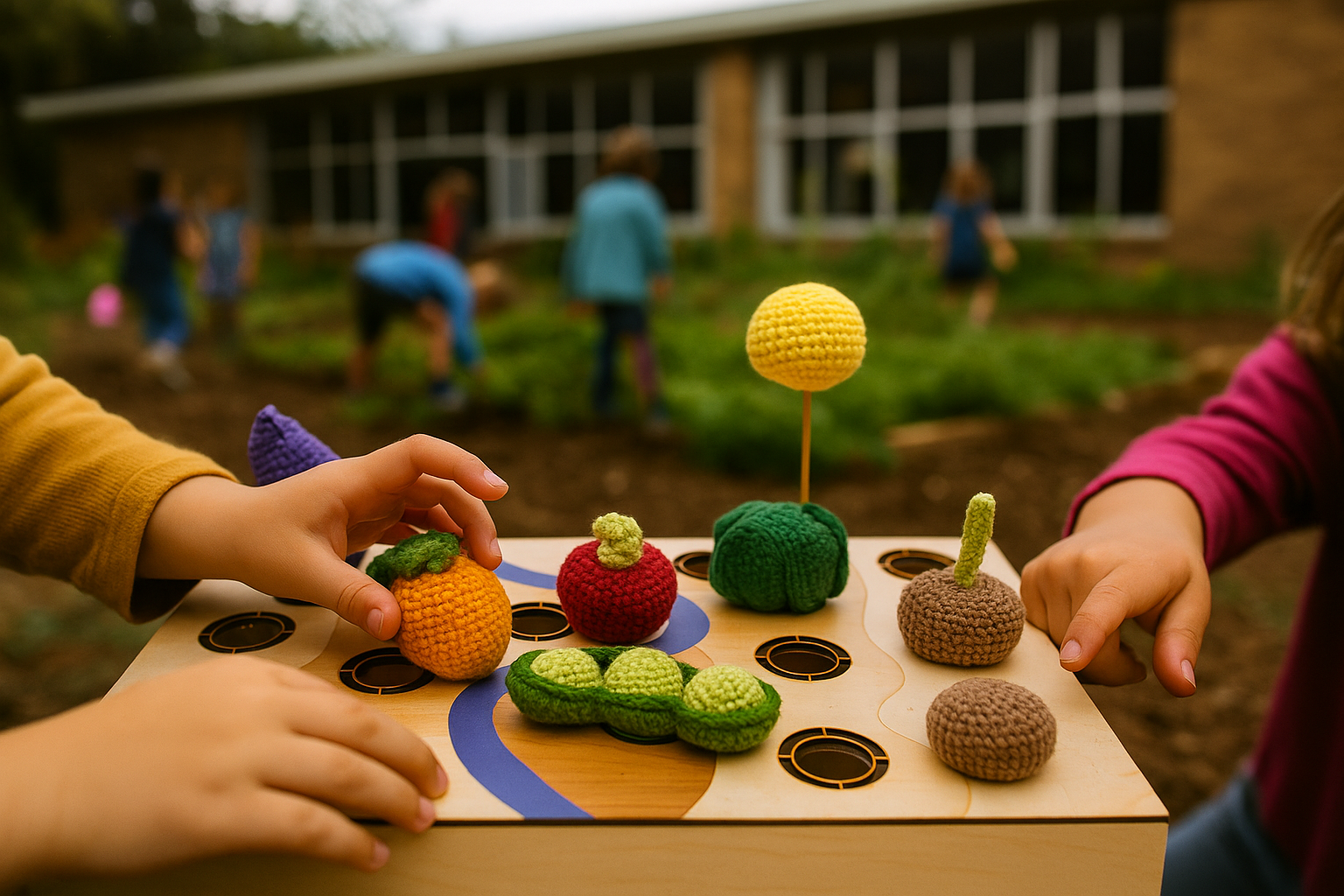projects
tangibles4kids
How can children explore and remember museum content better? MuCo is an interactive, child-friendly companion that playfully supports, structures, and extends the experience of the exhibition World of the Senses at the Deutsches Hygiene-Museum Dresden.
Vegetable Geniuses is an interactive model bed using crocheted vegetable figures, info cards, and visual feedback to playfully teach mixed cultivation, water, and sun needs – for children and curious adults.
…is a modular, analog play system designed to get children moving. Inspired by research on physical activity and cognitive development, it offers interactive tools that promote motion, focus, and creative engagement through play.
SNOLD is an interactive, sensor-equipped toy designed to answer the questions that naturally arise during active play; How high can I throw it? How fast can I run? How far can I jump?
Urban Explorer encourages kids (ages 6-8) to learn about renewable energy and city planning by freely building, combining and discovering.
TinyTrails is a tangible learning toy for children aged 4 and up that teaches basic programming concepts through storytelling, music, and exploration on an interactive play carpet.
The Language Puzzle is an interactive, multimodal language learning game for children aged approximately five to eight. Its goal is to promote language learning through a playful environment, particularly through visual, tactile, and auditory learning.






